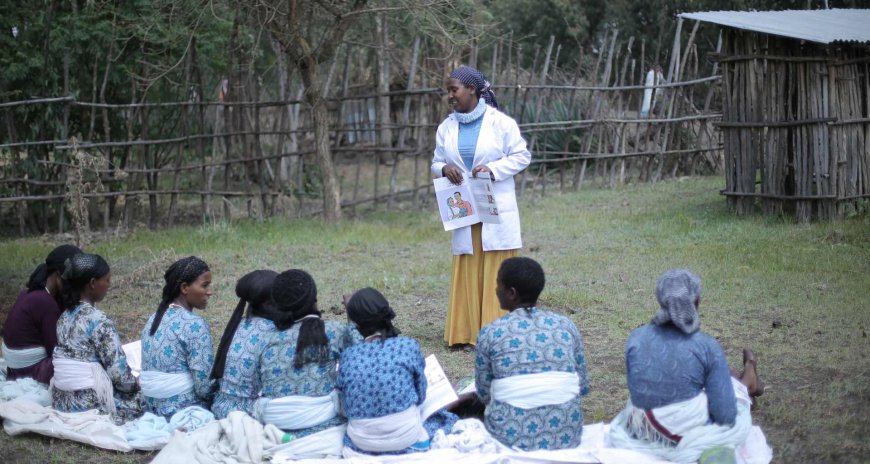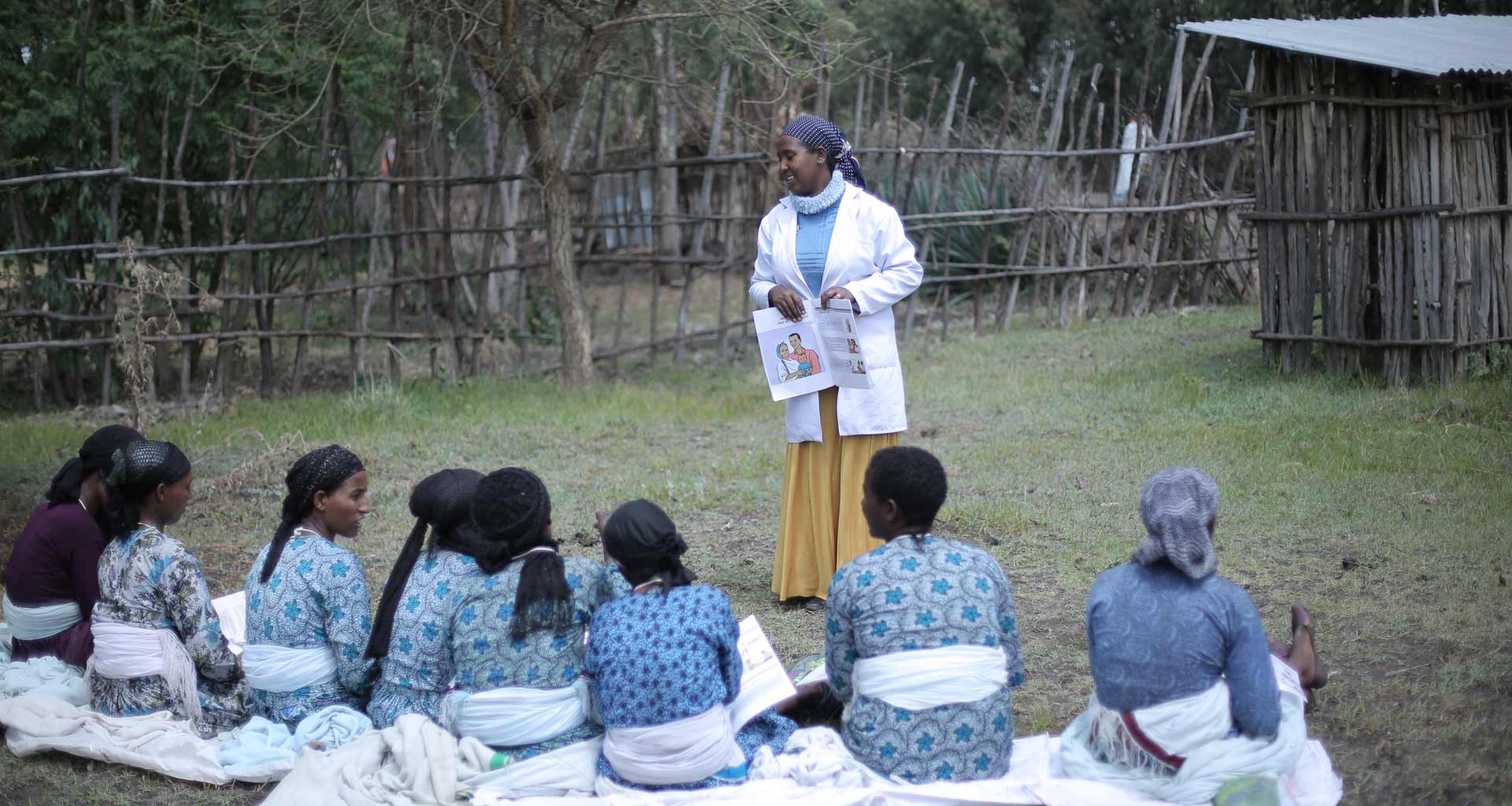Comprehensive sexuality education

Empowering Young People through Comprehensive Sexuality Education

UNFPA works to empower young people to shape the lives they want. This means mitigating adolescents’ risk of developing harmful behaviors, while promoting positive, protective actions and attitudes. Comprehensive sexuality education is a key component of UNFPA’s global strategy for adolescents and youth.
Comprehensive Sexuality Education Programs
UNFPA works with governments and partners to develop and implement comprehensive sexuality education programs, in and out of school, that meet international technical standards. In 2019, UNFPA launched a global program for out-of-school comprehensive sexuality education, specifically targeting frequently left-behind young people. Among many other initiatives:
- In Moldova, UNFPA is working with the government and partners to deliver comprehensive sexuality education to refugees from Ukraine, with sessions on life skills and resilience building, as well as mental health counseling and sexual and reproductive health referrals and information.
- UNFPA Malawi has a specific emphasis on delivering comprehensive sexuality education to young people living with HIV, by identifying and training facilitators from the same community.
- UNFPA Palestine has developed a digital educational platform for sexual education; the application has been made accessible to young people with hearing impairment and also has been adapted to audio for those with visual disabilities.
Expanding In-School Curricula
In addition, many countries have been expanding the breadth of their in-school curricula in response to the UN International Technical Guidance on Sexuality Education. For example:
- In Lao People’s Democratic Republic, the guidance was used to develop lesson plans and learning objectives after an analysis revealed a lack of content on gender, rights, sexual behavior, and equitable social norms in the existing life skills curricula.
- In South Africa, the guidance was used to create lesson plans and training for teachers to empower them to address important sensitive topics that might otherwise be left out.
For more examples, refer to the Global Status Report on Comprehensive Sexuality Education.
International Technical and Programmatic Guidance on Out-of-School Comprehensive Sexuality Education
In advocating for policies on, and investments in, comprehensive sexuality education, in and out of schools, UNFPA and partners recognized that traditional sexuality education does not meet the needs of all young people, such as populations outside of school. To address this, UNFPA and partners (UNESCO, WHO, UNICEF, UNAIDS) launched the International Technical and Programmatic Guidance on Out-of-School Comprehensive Sexuality Education in 2020. It provides evidence-based, human rights-centered guidelines and recommendations for reaching the most vulnerable young people. Out-of-school programs often include community-based training and education, and may focus on groups such as:
- Young people with disabilities
- Young indigenous people
- LGBTQIA+ youth
- Young people living with HIV
- Young people living in humanitarian settings
Global Partnership Forum on Comprehensive Sexuality Education
UNFPA also co-convenes the Global Partnership Forum on Comprehensive Sexuality Education together with UNESCO, with the aim to advance research, promote good practices, enhance collaboration, and overcome challenges. Members include UN agencies, funding agencies, international civil-society organizations working in the area of sexual and reproductive health and rights, youth-led organizations, research or academic institutions, and education-related and other professional networks.
Building Evidence on Comprehensive Sexuality Education
UNFPA is building the evidence on comprehensive sexuality education. It is collaborating with the World Health Organization in conducting research on UNFPA’s comprehensive sexuality education programming, in partnership with local research institutions. In May 2023, a special edition of the journal Sexual and Reproductive Health Matters, titled “Learning beyond the classroom: comprehensive sexuality education for outside-of-school settings,” shared implementation research from Colombia, Ethiopia, Ghana, and Malawi.
Updated on 3 July 2024
SDGs, Targets, and Indicators
| SDGs | Targets | Indicators |
|---|---|---|
| SDG 3: Good Health and Well-being | Target 3.7: By 2030, ensure universal access to sexual and reproductive health-care services, including for family planning, information and education, and the integration of reproductive health into national strategies and programs. | – UNFPA works with governments and partners to develop and implement comprehensive sexuality education programs that meet international technical standards. – UNFPA Malawi has a specific emphasis on delivering comprehensive sexuality education to young people living with HIV. – UNFPA Palestine has developed a digital educational platform for sexual education. |
| SDG 4: Quality Education | Target 4.7: By 2030, ensure that all learners acquire the knowledge and skills needed to promote sustainable development, including, among others, through education for sustainable development and sustainable lifestyles, human rights, gender equality, promotion of a culture of peace and non-violence, global citizenship and appreciation of cultural diversity and of culture’s contribution to sustainable development. | – UNFPA works with governments and partners to develop and implement comprehensive sexuality education programs in and out of school that meet international technical standards. – Many countries have been expanding the breadth of their in-school curricula in response to the UN International Technical Guidance on Sexuality Education. – In Lao People’s Democratic Republic, the guidance was used to develop lesson plans and learning objectives after an analysis revealed a lack of content on gender, rights, sexual behavior, and equitable social norms in the existing life skills curricula. – In South Africa, the guidance was used to create lesson plans and training for teachers to empower them to address important sensitive topics that might otherwise be left out. |
| SDG 5: Gender Equality | Target 5.6: Ensure universal access to sexual and reproductive health and reproductive rights as agreed in accordance with the Programme of Action of the International Conference on Population and Development and the Beijing Platform for Action and the outcome documents of their review conferences. | – UNFPA works with governments and partners to develop and implement comprehensive sexuality education programs that meet international technical standards. – UNFPA Malawi has a specific emphasis on delivering comprehensive sexuality education to young people living with HIV. – UNFPA Palestine has developed a digital educational platform for sexual education. |
| SDG 10: Reduced Inequalities | Target 10.3: Ensure equal opportunity and reduce inequalities of outcome, including by eliminating discriminatory laws, policies, and practices and promoting appropriate legislation, policies, and action in this regard. | – UNFPA and partners launched the International Technical and Programmatic Guidance on Out-of-School Comprehensive Sexuality Education to address the needs of populations outside of school, including LGBTQIA+ youth, young people with disabilities, young indigenous people, young people living with HIV, and young people living in humanitarian settings. |
Source: unfpa.org








